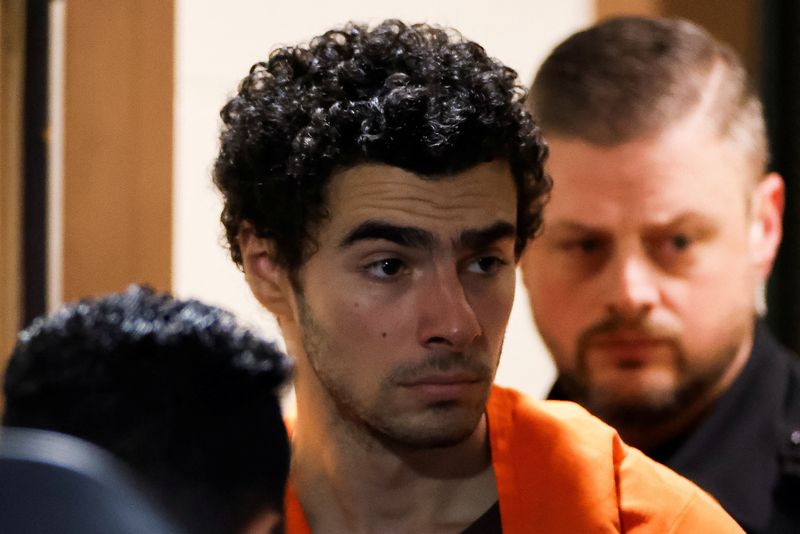(Reuters) – The suspect in the killing of UnitedHealth Group (NYSE:UNH) executive Brian Thompson is due to appear in a Pennsylvania court on Thursday morning for a hearing on a request by New York to extradite him to Manhattan to face murder charges.
Luigi Mangione, 26, was arrested in Altoona, Pennsylvania, on Dec. 9, five days after Thompson was fatally shot outside a Manhattan hotel before a company conference in what law-enforcement officials have called a premeditated assassination.
A grand jury in New York has indicted Mangione on 11 counts, including first-degree murder and murder as an act of terrorism. Mangione has been in jail since his arrest. His New York defense lawyer, Karen Friedman Agnifilo, has declined to comment on the charges against Mangione.
Police in Pennsylvania said Mangione had a self-assembled 9mm handgun in his backpack and a homemade silencer when he was arrested after being spotted at a McDonald’s (NYSE:MCD) restaurant. The handgun resembled the weapon used to kill Thompson, CEO of UnitedHealthcare, the largest U.S. health insurer.
Mangione, a Maryland native who had lived in Hawaii, also had multiple fake identification documents, including a fake New Jersey ID that was used to check into a Manhattan hostel days before Thompson’s shooting, police said.
In Pennsylvania, Mangione has been charged with forgery and illegally possessing an unlicensed gun. A preliminary hearing on the Pennsylvania charges is scheduled at the Blair County courthouse on Thursday morning.
A second hearing to discuss extradition to New York is then scheduled in the same courthouse before Judge David Consiglio. Under Pennsylvania law, Mangione can waive his right to extradition proceedings if he tells the judge that he consents to being transferred to New York custody.
Manhattan District Attorney Alvin Bragg said on Tuesday he had indications that Mangione would not challenge New York’s extradition effort.
Bragg’s office is accusing Mangione of an act of terrorism under New York law because Thompson’s killing was intended to intimidate or coerce civilians or “influence the policies of a unit of government.”

